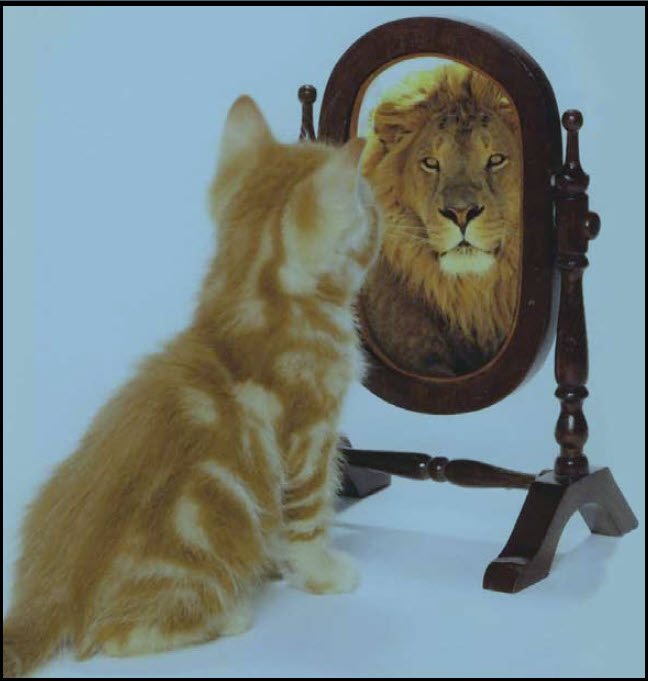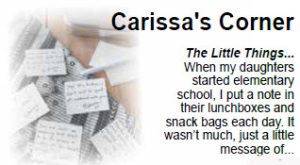 By: Detri L. McGhee, CLU, ChFC
By: Detri L. McGhee, CLU, ChFC
A few sessions back we began looking at the power behind the development of high levels of EMOTIONAL INTELLIGENCE experienced by wisely handling both Fear and Joy. We spent a couple of sessions on JOY, noting how Joy differs from Happiness. I promised that one day we would look at FEAR. Well, it won’t be today! I just don’t want to concentrate on that attribute yet. But, hang in there…one week soon we will delve into some issues there.
Today, as we consider Emotional Intelligence and how to develop higher levels of success there, let’s look at some basic elements. Let’s do a self-evaluation. To do this right, you need to set aside some alone time: preferably a lot longer than an hour. Get alone in a quiet place with pen and paper…no computer…no recorder. Write in your own handwriting, in your own words, and so honestly that you may not want anyone else to see it. In reality, this would make a great weekend project, though that may be hard to achieve. Now, INK IT, don’t just THINK IT!
#1. WHO AM I?
· List all basic facts you can about “who” you are. Start with the obvious, simple facts: Age, gender, occupation, financial status, what you do, relationships (i.e. parent, child, aunt/uncle, pianist, guitarist, stamp-collector, chef, tax-collector, friend, banker, golfer, housekeeper, care-giver, etc.) List at least 20, preferably more.
· List every possible character-describing words about yourself, both positive and negative. Ex. honest, self-indulgent, prideful, loyal, kind, harsh, etc. Think about your various relationships and ask, “How would they describe me if they knew no one else would know? What good and not-so-good things would they say?
· Who do you think you are? Who do others think you are?
· Set a 5-minute timer, and ponder this: If I continue growing in the same paths I am now on, 25 years from now, I will be ______ old: What will I look like? Describe yourself as the people in your life are likely to see you then. Don’t stop at 5 minutes if you’re on a roll, but whatever you do, do not stop before 5 full minutes.
#2. WHAT TRAITS IN OTHERS DO YOU MOST ADMIRE OR DESPISE?
· List the attributes/traits in others that you most admire. Then rank them in order of priority, from most to least desirable.
· List the attributes/traits in others that you most dislike. Then rank them in order of priority, from most undesirable to least irritating.
#3. DESCRIBE YOUR PERFECT SELF:
· Be sure to include positive traits you already possess.
· What do you most admire in others that you lack in yourself?
· Define areas that need refining, polishing, or even demolishing.
· Be as detailed as possible, considering as many varying relationships as you can.
#4. DECIDE ANY CHANGES YOU CAN COMMIT TO THAT PROPEL YOU FORWARD:
Remember the Chinese word for “CHANGE” is a combination of the words “crisis” and “opportunity.”
Change is seldom easy. However, change can often bring freedom, peace, joy, abundance, solid positive growth, and many other good things. We WILL change through the years. But unless we take charge of – responsibility for – the changes that come, the result is likely to be a deterioration, not a change of positive qualities. If YOU do not decide who you will become, you abdicate that power to those around you, and lose a little of yourself each season.
John Maxwell says, “Change usually only comes when we hurt enough we have to, see enough we are inspired to, learn enough that we want to, or receive enough that we are able to.”
A parting thought – a repeat from last time: “Compare the cost of doing something with the cost of doing nothing.”
Detri would love to hear from you! How do you develop your EI? Especially your thoughts on how to handle criticism, or problems you would like to get feedback on from others. Email: detrimcghee@gmail.com or Facebook: Criticism Management by Detri. Free outline for Criticism Management available at www.criticismmanagement.com
By: Detri McGhee – CLU, ChFC






